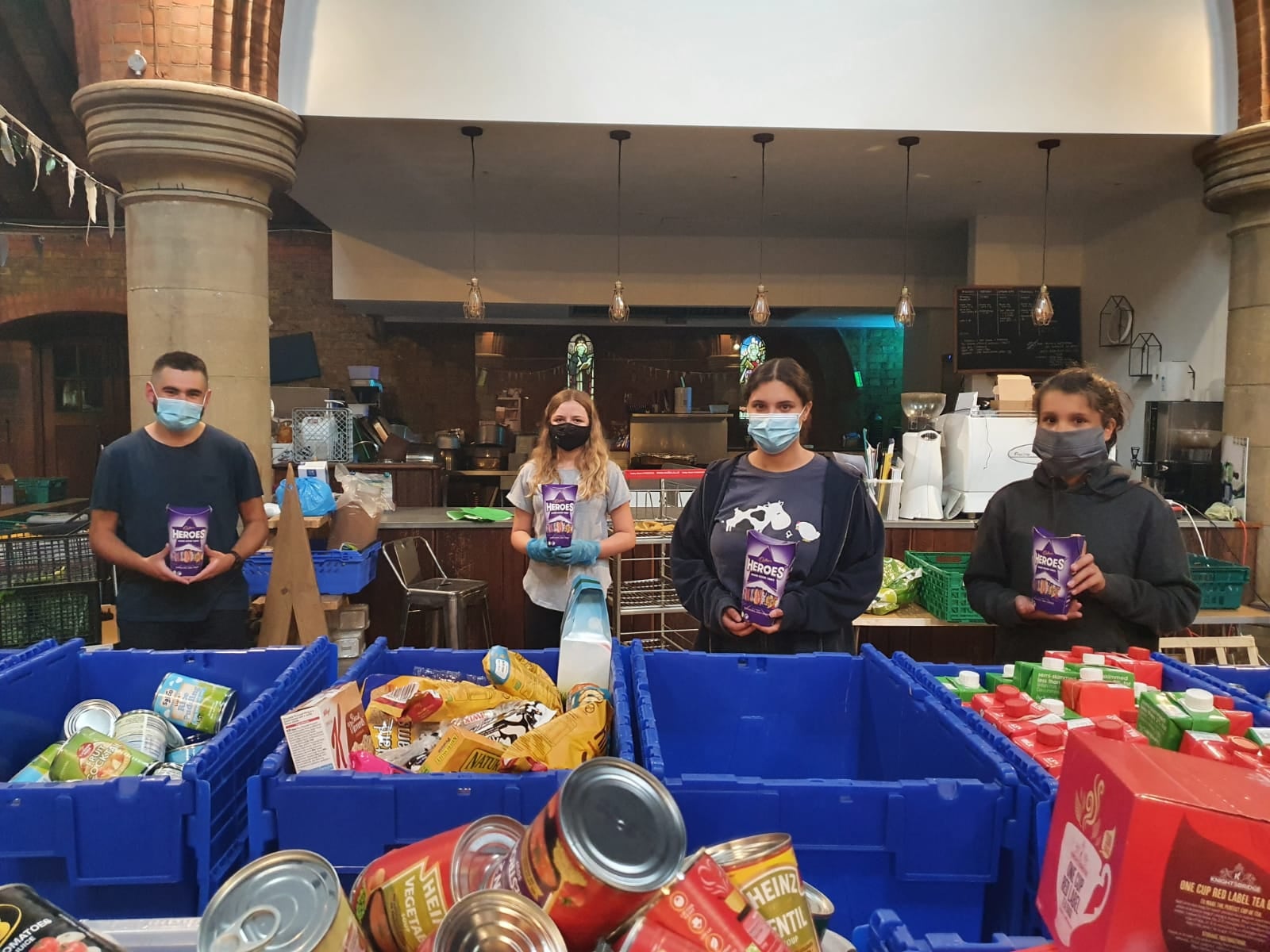Heads ask ‘what century are we living in’ over rising food bank use
Headteachers condemn ‘Dickensian’ levels of rising poverty at annual conference.

Your support helps us to tell the story
From reproductive rights to climate change to Big Tech, The Independent is on the ground when the story is developing. Whether it's investigating the financials of Elon Musk's pro-Trump PAC or producing our latest documentary, 'The A Word', which shines a light on the American women fighting for reproductive rights, we know how important it is to parse out the facts from the messaging.
At such a critical moment in US history, we need reporters on the ground. Your donation allows us to keep sending journalists to speak to both sides of the story.
The Independent is trusted by Americans across the entire political spectrum. And unlike many other quality news outlets, we choose not to lock Americans out of our reporting and analysis with paywalls. We believe quality journalism should be available to everyone, paid for by those who can afford it.
Your support makes all the difference.Headteachers have criticised “Dickensian” levels of poverty in the country at a conference on Friday.
Paul Gosling, the new president of the NAHT school leaders’ union, told the annual conference in Telford that when he first became a headteacher, he had only heard of the use of food banks in connection with work with the homeless in London.
“But now they are a vital part of our local community’s support,” he said, adding, “what century are we living in?”
By largely ignoring the issue of child poverty, this government is not taking the success of all children in education seriously
He said that when he became headteacher of Exeter Road Community Primary School in Devon 13 years ago, around 30% of children were receiving free school meals, whereas in the January 2022 census, that figure had jumped to 45%, a “shocking and stark” rise in poverty levels.
Dr Gosling added that the local food bank has given him emergency rations to pass on to struggling families, while 8% of the children at his school had Christmas presents provided by charity.
“This is Dickensian,” he said.
Dr Gosling also highlighted the “worrying increase” in parents struggling with their mental health, with some parents “in tears” after the morning drop off, because of their fears about being unable to pay their rent or feed their children.
“This Government’s aspirations for education contained in its recent white paper can only be realistically achieved by tackling poverty,” he said.
“By largely ignoring the issue of child poverty, this government is not taking the success of all children in education seriously.”
Dr Gosling told the conference that his school is finding it increasingly “challenging” to provide some of the services cut through austerity measures, such as parenting courses or baby and toddler groups, while accessing mental health services for pupils has become “almost impossible”.
He added that it is “painfully ironic” that the Government has suggested one-to-one tuition as a way of meeting numeracy and literacy targets, when his school had employed one-to-one teachers for this purpose in 2012, and was forced to cut these posts because of the decline in school funding.
Dr Gosling said that his one form entry school welcomed 26 refugee pupils from Afghanistan, which he says demonstrates a humanity that is lacking in how headteachers have been treated during the pandemic.
“On the cold, dark days of January and February, watching the children play together, even without a commonly spoken language, brings home the warmth and humanity that I know exists in many schools and academies,” he said.
He added that “some of the warmth and humanity has been driven out of the education system” and that this was exposed by the “utter contempt” with which school leaders were treated during the pandemic.
Education Secretary Nadhim Zahawi’s absence at the conference is a sign that he is “unable to be here to look in the eye a group of people who truly understand what it means to be a leader”, he said.
Paul Whiteman, general secretary of the NAHT, told the conference that “an absolute failure of political leadership” is making education harder for heads, teachers and pupils.
The NAHT conference will discuss whether schools should receive more funding to help refugee pupils to settle in, as schools may be one of the first places where pupils fleeing war start to process the trauma they have experienced.